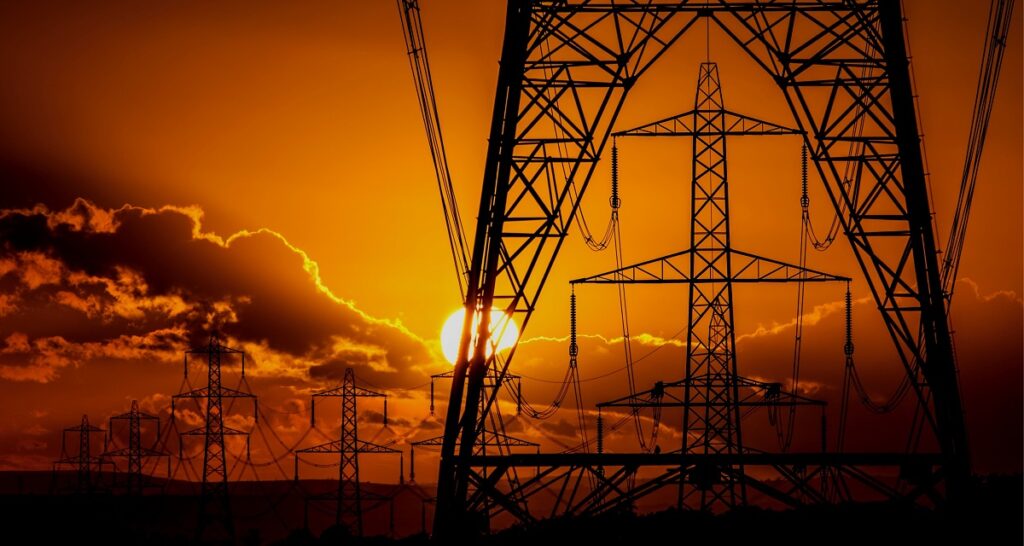Energy regulator Ofgem has released what it has said is a “landmark five year vision” as part of the draft plans for the next price control period, RIIO-ED2.
The proposed package for the price control period – which spans 2023 to 2028 and sets the framework and revenue that each of Britain’s distribution network operators (DNOs) can earn from charges on consumers’ energy bills – totals £20.9 billion.
This includes £2.7 billion of upfront funding to boost grid capacity to support the rollout of electric vehicles (EVs), heat pumps and the connection of more local, low carbon generation such as solar, wind and battery storage.
Ofgem said that flexible funding arrangements will also mean that investment can dial up to reflect changing demands over time.
This plan for RIIO-ED2 will boost grid capacity, improve customer service and resilience to prevent power outages and prepare the way for increases in the generation of cheaper, greener, home-grown energy to bring down bills in the long-term, Ofgem said.
Efficiency and returns
Increased investment for net zero will be delivered without increasing network chargers on consumer bills, according to the regulator, with this to be achieved through “tough efficiency challenges” on network companies and lower returns for investors.
Indeed, the draft determinations detail an average downward adjustment of 17% to the levels of baseline funding sought by the companies in their business plans, and an ongoing efficiency challenge of 1.2% per year.
The DNOs submitted their final business plans last year, with Electricity North West unveiling plans to invest £1.8 billion, Western Power Distribution planning a £6.7 billion investment, Scottish and Southern Electricity Networks planning a £3.99 billion investment and Northern Powergrid planning a £3.3 billion investment.
Gillian Cooper, head of energy policy for Citizens Advice, said: “Ofgem is right to challenge the networks to operate as efficiently as possible – particularly when many families are being squeezed from all sides amid rising bills.”
However, David Smith, chief executive of Energy Networks Association said: “The final determinations will need more work to give us confidence that RIIO-ED2 will be compatible with customers’ expectations of an energy system that enables the transition to net zero. We will work with Ofgem over the coming months to meet this challenge.”
The final determinations are due to be published in December, with Ofgem currently consulting on the draft determinations until 25 August.
The draft determinations will enable the delivery of a more secure and reliable electricity network less at risk of power cuts and new support and guidance for vulnerable and low-income households, Ofgem said.
The regulator said the price control period will deliver a grid that allows for new innovations to give more control to consumers through better data and more regularly updated prices for peak and off-peak demand creating efficiencies and saving money.
New frameworks and licence requirements
Other elements of the draft determinations include an “agile package” of uncertainty mechanisms that are designed to allow investment to adapt quickly to support higher volumes of low carbon technologies if networks are faced with sharper uptakes in demand for new connections.
Additionally, there will be a new framework of outputs and incentives for Distribution System Operation (DSO) with clearer executive level accountability for neutral decision-making between DSO and DNO business activities.
There will also be new licence requirements for all DNOs to ensure that they communicate flexibility requirements for the future and the detailed information about the outcome of their procurement of flexibility services annually to Ofgem, to benefit those businesses able to respond.
The draft determinations also include a commitment to further explore what more can be done to speed up connections, including obligations on companies around the overall time to connect.
Speed of connections is being looked at by the DNOs, with WPD announcing last year that it can approve most new connections for domestic EV chargers and heat pumps on the same day or the next day after the implementation of new processes.
However, developers of large-scale renewable assets such as solar PV are currently experiencing lengthy connection timeframes.
There will also be an initial funding package of £5.2 billion to ensure that key network assets are maintained, repaired and replaced, with further funding to ensure that the networks remain resilient, including in relation to severe weather.
Jonathan Brearley, chief executive of Ofgem, said: “These are challenging times, and this is the path out of relying on expensive and polluting imported fossil fuels and moving to a home-grown energy system, that exploits the best of modern technology to level out demand and reduce costs for consumers.”
More information on the draft determinations can be found here.






